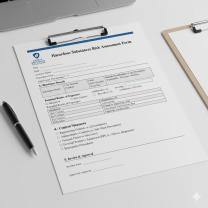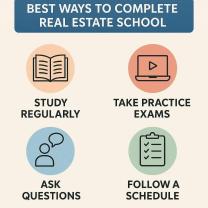What are some high school challenges?
High school is a significant period of transition and growth for students. While it can be an exciting time, it also comes with its share of challenges. Here are some common high school challenges and potential coping strategies:
Academic Pressure:
- Challenge: Increasing academic workload, challenging courses, and the pressure to perform well.
- Coping Strategies:
- Develop effective study habits and time management skills.
- Seek help from teachers or tutors when needed.
- Break tasks into smaller, more manageable steps.
- Prioritize self-care to manage stress.
Social Issues:
- Challenge: Navigating social dynamics, peer pressure, and the desire for social acceptance.
- Coping Strategies:
- Cultivate positive friendships and relationships.
- Be true to yourself and your values.
- Seek support from trusted adults or counselors.
- Develop effective communication skills.
Extracurricular Balancing:
- Challenge: Juggling academic responsibilities with extracurricular activities.
- Coping Strategies:
- Prioritize activities that align with your interests and goals.
- Create a realistic schedule to balance academics and extracurriculars.
- Learn to say no when necessary to avoid overwhelming yourself.
Time Management:
- Challenge: Balancing homework, projects, and other commitments.
- Coping Strategies:
- Use tools like planners or digital calendars to organize tasks.
- Break down larger tasks into smaller, manageable steps.
- Set realistic deadlines and prioritize tasks based on urgency.
Transition to Independence:
- Challenge: Developing independence and decision-making skills.
- Coping Strategies:
- Gradually take on more responsibilities.
- Seek guidance from parents, teachers, or mentors.
- Learn from mistakes and use them as opportunities for growth.
Standardized Testing Stress:
- Challenge: Preparing for and dealing with the stress of standardized tests.
- Coping Strategies:
- Start preparing well in advance to avoid last-minute stress.
- Use test-taking strategies and practice tests.
- Remember that a test score is just one aspect of your academic profile.
Identity and Self-Discovery:
- Challenge: Exploring personal identity and values.
- Coping Strategies:
- Embrace self-discovery as a natural part of adolescence.
- Engage in activities that help you explore your interests.
- Seek support from friends, family, or counselors.
Future Planning:
- Challenge: Deciding on future education and career paths.
- Coping Strategies:
- Explore different careers and educational options.
- Seek advice from counselors, teachers, and professionals.
- Understand that it's okay not to have everything figured out immediately.
Peer Relationships:
- Challenge: Navigating friendships, conflicts, and social dynamics.
- Coping Strategies:
- Foster positive relationships built on trust and respect.
- Be open to meeting new people and making new friends.
- Develop strong communication skills to address conflicts.
Mental Health:
- Challenge: Coping with stress, anxiety, or other mental health concerns.
- Coping Strategies:
- Reach out to mental health professionals if needed.
- Prioritize self-care activities.
- Develop a support system of friends and family.
It's important for high school students to recognize that facing challenges is a normal part of adolescence. Seeking support from trusted adults, developing effective coping strategies, and maintaining a healthy balance between academics and personal well-being can contribute to a more positive high school experience.
High school is a period of significant transition and growth for adolescents, marked by both exciting opportunities and challenging obstacles. Here's a closer look at some of the common challenges faced by high school students:
1. Academic Hurdles
High school academics often present a significant step up from middle school, demanding increased focus, time management, and critical thinking skills. Students may struggle with:
Increased Coursework: High school curriculum typically encompasses a wider range of subjects and more in-depth content, requiring students to adapt to new learning styles and manage a heavier workload.
Standardized Testing: High school students often face pressure to perform well on standardized tests, such as the SAT or ACT, which can have implications for college admissions and scholarships.
Balancing Academics and Extracurriculars: Juggling academic demands with extracurricular activities, part-time jobs, and personal commitments can lead to time management challenges and stress.
2. Social Pressures
Social pressures during high school can be intense, influencing students' behavior, self-esteem, and decision-making. These pressures may stem from:
Fitting In and Peer Acceptance: The desire to fit in with social groups and gain peer acceptance can lead to conformity, even if it goes against personal values or beliefs.
Body Image and Self-Esteem: Adolescents are particularly susceptible to body image issues and self-esteem challenges, often influenced by media portrayals and peer comparisons.
Social Media and Cyberbullying: Social media platforms can amplify social pressures and cyberbullying, making it difficult for students to escape negative interactions and maintain a positive self-image.
3. Personal Growth and Identity Formation
High school is a time of significant personal growth and identity exploration, which can lead to internal struggles and uncertainties. Students may grapple with:
Emerging Identity and Self-Discovery: Adolescents are in the process of forming their own identity, exploring their values, beliefs, and aspirations, which can lead to confusion and uncertainty.
Emotional Development and Mood Swings: Hormonal changes and increased emotional sensitivity can lead to mood swings, anxiety, and difficulty regulating emotions.
Future Planning and Career Exploration: High school students face pressure to make decisions about their future, choosing academic paths, exploring career options, and considering college applications.
These challenges can be overwhelming for high school students, but with support, guidance, and resilience, they can navigate these hurdles and emerge successful and well-rounded individuals. Open communication with parents, teachers, and counselors can provide students with the support they need to overcome challenges and thrive during this formative period.











